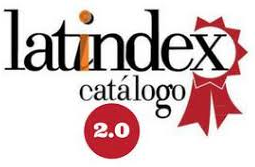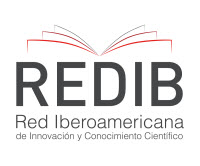El debate sobre el “imperio angevino”. Usos de la categoría “imperio” para el período 1154-1224
Resumen
Desde que en 1887 Kate Norgate titulara uno de los capítulos de su England under the Angevin Kings, “The Angevin Empire”, la categoría de “Imperio angevino” o su equivalente “Imperio Plantagenet” para describir el conglomerado de territorios bajo autoridad de Enrique II y sus herederos se consolidó entre los historiadores. Si bien su uso se ha convertido en algo frecuente, ha generado debates en relación al uso de “imperio” como concepto analítico para analizar el conjunto de territorios bajo dominio angevino. En el presente artículo delinearemos brevemente los contornos de este debate a partir del análisis de algunos trabajos clave con el objetivo de mostrar cómo la idea de un “imperio angevino” ha movilizado distintas interpretaciones para el período y cómo estas se vinculan con diferentes formas de comprender el concepto.
Citas
Aurell, M. (2012), El Imperio Plantagenet, Madrid: Sílex [2004].
Aurell, M. (dir.) (2003), Culture politique des Plantagenêt (1154-1224). Actes du Colloque tenu à Potiers su 2 au 5 mai 2002, Poitiers: Centre d'études supérieures de civilisation médiévale.
Bachrach, B. (1978), “The Idea of the Angevin Empire”, Albion: A Quarterly Journal Concerned with British Studies 10: 4, pp. 293-299.
Bates, D. (1989), “Normandy and England after 1066”, English Historical Review 104: 413, pp. 851-880.
Bates, D. (2013), The Normans and Empire, Oxford: Oxford University Press.
Bautier, R. H. (1986), “«Empire Plantagenêt» ou «espace Plantagenêt». Y eut-il une civilisation du monde Plantagenet?”, Cahiers de civilisation médiévale 113-114, pp. 139-147.
Beaud, O. (2015), “Propos Introductifs”, Jus Politicum 14, pp. 1-7, Dossier “Peut-on penser juridiquement l'Empire comme forme politique?”, http://juspoliticum.com/numero/peut-on-penser-juridiquement-l-empire-comme-forme-politique-64.html.
Boussard, J. (1956), Le gouvernement d’Henri II Plantagenêt, París: Librairie d’Argences.
Burbank, J. y Cooper, F. (2010), Empires in World History. Power and the Politics of Difference, Princeton: Princeton University Press.
Chauou, A. (2001), L’idéologie Plantagenêt, Rennes: Presses Universitaires de Rennes.
Chibnall, M. (1999), The Debate on the Norman Conquest, Manchester-Nueva York: Manchester University Press.
Clanchy, M. T. (2014), England and its Rulers, 1066-1307, Oxford: Wiley- Blackwell.
Duverger, M. (dir.) (1980), Le concept d’Empire, París: PUF.
Fanning, S. (1991), “Bede, Imperium and the Bretwaldas”, Speculum 66: 1, pp. 1-26.
Freeman, E. (1887), “Review: England under the Angevin Kings by Kate Norgate”, English Historical Review 2: 8, pp. 774-780.
Fryde, N. (2001), Why Magna Carta? Angevin England revisited, Münster: LIT.
Folz, R. (1969), The Concept of Empire in Western Europe: From the Fifth to the Fourteenth Century, Nueva York: Harper.
Gillingham, J. (2001), The Angevin Empire, Londres: Arnold.
Gillingham, J. (2016), “Bureaucracy: the English State and the Crisis of the Angevin Empire, 1199-1205”, en Crooks, P. y Parsons, T. (ed.), Bureaucracy in World History. From Late Antiquity to the Twentieth Century, Cambridge: Cambridge University Press.
Higham, N. J. (1995), An English Empire: Bede and the Early Anglo-Saxon Kings, Manchester: Manchester University Press.
Holt, J. (1975), “The end of the anglo-norman realm”, Proceedings of the British Academy 61, pp. 223-265.
Howe, S. (2002), Empire: A Very Short Introduction, Oxford: Oxford University Press.
Leonhard, J. (2013), “The longue durée of Empire. Toward a comparative semantics of a key concept in Modern European History”, Contributions to the History of Concepts 8: 1, pp. 1-25.
Le Patourel, J. (1965), “The Plantagenet Dominions”, History 50: 170, pp. 289-308.
Le Patourel, J. (1976), The Norman Empire, Oxford: Oxford University Press.
Madeline, F. (2007), “L’empire et son espace. Héritages, organisations et pratiques”, Hypothéses 1, pp. 213-225.
Madeline, F. (2014), Les Plantagenêts et leur Empire. Construire un territoire politique, Rennes: Presses Universitaires de Rennes.
Muldoon, J. (1999), Empire and Order. The Concept of Empire, 800-1800, Londres: Macmillan.
Norgate, K. (1887), England under the Angevin Kings, 2 vols., Londres-Nueva York: McMillan & Co.
Petit Dutaillis, Ch. (1936), The Feudal Monarchy in France and England, Nueva York-Evanston: Harper Torchbooks [1933].
Poole, A. L. (1951), From Domesday Book to Magna Carta (1087-1216), Oxford: Clarendon Press.
Powicke, F. M. (1913), The Loss of Normandy (1189-1204). Studies in the History of the Angevin Empire, Manchester: Manchester University Press.
Russo, L. (2016), “’The Norman Empire’ nella medievistica del XX secolo: una definizione problematica”, en Schede Medievali 54, pp. 159-173.
Turner, R. (1995), “The problem of survival for the ‘Angevin Empire’: Henry II’s and his son’s vision versus late twelfth-century realities”, The American Historical Review 100: 1, pp. 78-96.
Warren, W.L. (1973), Henry II, Berkeley-Los Ángeles: University of California Press.
Warren Hollister, C. y Keefe, T. (1973), “The making of the Angevin Empire”, Journal of British Studies 12: 2, pp. 1-25.
West, F. J. (1999), “The Colonial History of the Norman Conquest?”, History 84: 274, pp. 219-236.
Yorke, B. (1990), Kings and Kingdoms of Early Anglo-Saxon England, Londres-Nueva York: Routledge.

Esta obra está bajo licencia internacional Creative Commons Reconocimiento-NoComercial-CompartirIgual 4.0.
Los autores que publiquen en esta revista aceptan las siguientes condiciones: 1) los autores conservan los derechos de autor y ceden a la revista el derecho de la primera publicación, con el trabajo registrado con Licencia Creative Commons Atribución - No Comercial - Compartir Igual 4.0 Internacional, que permite a terceros utilizar lo publicado siempre que mencionen la autoría del trabajo y la primera publicación en esta revista; 2) los autores pueden realizar otros acuerdos contractuales independientes y adicionales para la distribución no exclusiva de la versión del artículo publicado en esta revista (p. ej., incluirlo en un repositorio institucional o publicarlo en un libro) siempre que indiquen claramente que el trabajo se publicó por primera vez en esta revista; 3) se permite y recomienda a los autores a publicar su trabajo en Internet (por ejemplo en páginas institucionales o personales).










